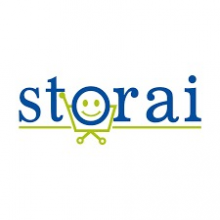
Who’s Responsible? POSH Act in the Retail Sector

Retail
177 week ago — 6 min read
Diversity and inclusion is now fast becoming an integral part of corporate governance and a significant milestone is the mandatory enforcement of the Prevention of Sexual Harassment of Women at Workplace (Prevention, Prohibition and Redressal) Act, 2013 (PoSH Act). The PoSH Act comprehensively defines what is an ‘aggrieved woman’, an ‘employer’, a ‘workplace’ and a ‘respondent’. However, the definitions are far simpler in law than they turn out to be in actual business. This is especially true for a business as complex as retail which employs a fair number of women in various roles.
The staffing puzzle in retail
A typical retail business model combines different types of workers—regular employees, temporary, free-pool or ad-hoc or daily wage workers. This varied workforce is also hired using a variety of mechanisms which include hiring through an agent/contractor, direct hiring, contract workers directly hired or engaged through the brand/ third-party agencies.
Then there are business models that don’t quite meet the straightforward definition of a workplace. For instance, counter-staffers of brands who are deployed inside multi-brand retail outlets within a multi-outlets mall.
To set up and operationalise a multi-brand retail outlet requires several layers of contractual relationships. For example, the Store Manager is probably a direct employee (perhaps permanent or contractual) of the physical space’s owner. The multi-brand workspace owner contracts and probably pays rent for or payments of some kind to either the mall owner or the operator.
Individual brand partners may provide the personnel for in-store promotions, either directly, or through a 3P manpower, staffing or personnel agency custom trained for retail businesses. Such personnel sign staffing contracts with the agency, basis fixed term tenure. The common service facilities like canteens, security staff and housekeeping staff also work in such shared workspace.
The PoSH law applies to all establishments and all personnel irrespective of whose payroll such employees are and who the contractor/ principal employer be. In case of a dispute or a complaint of sexual harassment, given the multiplicity of relationships, it becomes essential to map out the responsibilities to ensure appropriate and quick redressal. The key question, which arises in such situations is: whose PoSH Committee (i.e. which agency or institution) is responsible, under law, to receive complaints, hold enquiries and to provide efficacious remedy to the aggrieved?
Who’s responsibility is it?
Typically, a complaint could be made by:
1. A woman employee of the retail workspace against another direct employee
2. A woman employee of the retail workspace owner’s contractor, against an employee
3. A woman employee of a brand/ its contractor operating out of a retail workspace against the retail workspace owner’s direct employee(s)
4. A woman employee of a brand operating out of a retail workspace or its contractor, against the brand’s own employee
5. Any woman employee against a walk-in customer
6. A customer against any of the above categories of employees.
In situations 1 to 3, it’s the retail space owner’s responsibility to ensure PoSH compliance and it is their ICC that must investigate and provide recourse/relief to the victims, including interim measures. In situations 4 & 5, though the retail space owner may not be directly responsible, the premises are the ‘workplace’ as defined under the PoSH Act. Therefore, it remains the duty of the workplace owner to both connect the complainant to the employer (i.e. the manpower providing agency, or the brand, as the case may be) and ensure that resolution takes place as per the procedure laid out under the law. As for situation 6, the retail store where the incident occurred becomes the workplace under the PoSH Act and therefore should initiate an inquiry and ensure resolution as per due process.
Need for raising awareness
Most large retailer organisations have fairly well addressed the complaints relating to sexual harassment. However, there are a considerable number of start-ups, SMEs/ MSMEs in retail who need to follow best practices set by leading brands. Also, a considerable number of employees/contract workers engaged in the retail industry come from vulnerable backgrounds and lack awareness. The reality is not every contractor has a well-established PoSH Committee. Therefore, besides focussing on business targets, focussed awareness/ training programs that explain why employee welfare is essential to profits, will be the key to holistic success.
Also read: New world, new ways
Article source: STOrai Magazine. Article author Vasudevan V has over 20 years of experience as in-house Counsel at HUL & its JV Hindustan Field Service Private Ltd., where he is also a Committee Member for Code of Ethics & Conduct and PoSH. He has a strategic partnership with a Legal Advisory engaged in PoSH and D&I. He holds M.Com., LLM degrees and is a Certified Corporate Professional (IICA).
Disclaimer: The views and opinions expressed in this article are those of the author and do not necessarily reflect the views, official policy or position of GlobalLinker.
Most read this week




















Comments
Please login or Register to join the discussion